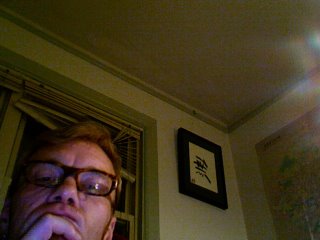
"...Having a keen eye on the world, feeling experiences with an open sensitivity,
if at times with too much sensitivity, caring about people (not all, I’m neither saint nor altruist), having the good or ill fortune to be placed in some odd experiences,
Also at times having the stones to walk head first into others.
Those, I think, make something good of a life.
This is all unplanned, like my death, there is no outline to guide me through this piece,
there is no map despite my fondness for maps, literal and metaphorical.
(I picked up a great copy of a newish translation of Dante’s Inferno recently,
translated as Hell, and it was not the quality of the words I wanted,
it was the maps and diagrams.
It’s laid out graphically, not scenes of torture, not Blakean drawings of the mystic,
but nearly architectural sketches of what is where, what one might expect
in the space of experience. (It explains in part why one of my only published
essays deals with "cartographies of utopia.")
This is extemporaneous. What do you make of that?
I too don’t know. It’s an anti-eulogy. It’s an anti-systematic handbook.
If so, then for what? It’s simply what I have. All I have.
In the poesis, then, what is it that feels good?
What kind of making brings you pleasure in addition to warding off the unpleasure
that naturally comes to us all? In doing- what have you lost?
Truly, beautifully lost? Where are those doings? And now, too late,
I only start to see how crucial it is to find them.
I’ve had hundreds and hundreds of questions put to me since my diagnosis,
and more accurately my prognosis, was made public,
many of them have been posted on Do Not Go Gentle, many discussed there.
Most elsewhere. Many are repeats, many, candidly speaking, are uninsightful —
but how many of us know just what to say or ask? I don’t begrudge any of them really.
Some just seem to have cut to the heart of the things: what will you do that matters?
And why do those things?
No doubt I’ll have a pretty good sense of this in about three months or so,
when the clock really steps up its pace, when my timeline starts to deviate radically
from most all of yours. Then I’ll know something more concretely.
Pause for thought.
One thing of which I’m sure, it’s not distraction.
Travel is fine, fun is fine, shopping is fine, responsible debauchery too.
There is an amazing book to be written on Distraction Theory,
I haven’t gotten to it, though I have notes everywhere, it hasn’t been written.
But it’s out there in the future. I do know, however,
that distraction is almost an insult to dying consciously, dare I use the cliché,
of dying with dignity. Again, I see nothing wrong with travel, fun, debauchery,
but they are not [it] Not for me, and I’m not sure that I can offer any further
explanation of why, they just miss the point, by definition.
Distraction is the activity that averts your eyes from seeing what is really happening.
There might be no outside of ideology, but distraction is the indulgence in ideology.
(e.g., Think fascism.) Just as faith, in my view, is the escape from critical thinking.
Certain dispositions require these, so be it, it’s not something we have much control of:
it’s what highlights the crucial difference between Jung and Freud.
The former believes too much in a voluntarist psychology, he must explain the psyche
and twist it so as to leave a possible space for the I to act freely;
the latter knows the determinist web we find ourselves caught in,
if we're lucky we find ourselves.
Marx saw it with political economy and history, faults aside.
Boils on his backside keeping him from sitting to finish Capital.
Nietzsche saw it with society’s morals and values, faults and all.
Arms wrapped around a beaten horse in madness.
So that is the base, the substructure if you will, for how to think of doing. In the doing the key aspect I keep seeing is a degree of choice within the circumstances I find myself in.
That is, what will I do with what I have? What will I be able to do?
What are my desires and where do they mesh with the doing?
It’s still hard to believe that Old Man Eliot could write this, at age 24:
“To have squeezed the universe into a ball / To roll it toward some overwhelming question,”
and then, in fact, earlier in the poem, the question itself.
In short, “Do I dare / Disturb the universe?” That is the overwhelming question.
How to begin? How should I presume? Yes. Yes.
Worse and more overwhelming still, however, is to ask
and only to ask and to leave it at that,
and that is Prufrock’s curse."
. . . The curse of J. Alfred Prufrock
Scott H Swaner
07-26-06 "The Overwhelming Question"
ts eliot
dante’s inferno
"If I thought my answer were given
to anyone who would ever return to the world,
this flame would stand still without moving any further.
But since never from this abyss
has anyone ever returned alive, if what I hear is true,
without fear of infamy I answer you."[10]

No comments:
Post a Comment